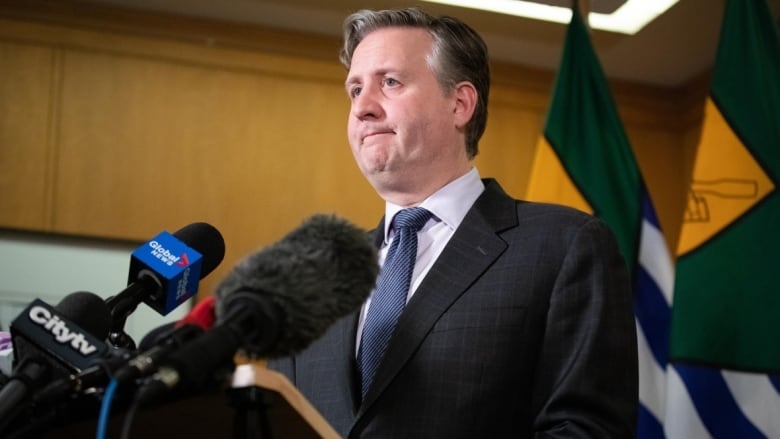Vancouver announces state of emergency to combat COVID-19
Declaration allows city to close any necessary buildings and the mayor to have greater powers

The City of Vancouver will be declaring a state of emergency to combat the COVID-19 outbreak.
Mayor Kennedy Stewart made the announcement Wednesday afternoon, saying there would be a special virtual council meeting on Thursday to make the declaration official.
"These are extraordinary times, and we need to take fast and extraordinary action," said Stewart.
It means the city will have a wide variety of powers it can immediately enact, including the possibility of closing all restaurants indefinitely to in-person service — something Stewart said businesses should prepare for.
"Make no mistake: there will be much, much more to do to fight the pandemic," he said.
- Stay informed by joining our CBC Vancouver Facebook group on coronavirus.
"Stay home as much as you can, and on the rare occasions you need to leave home to get essentials, keep a safe distance."
Declaring a state of emergency will also give the city more flexibility to deploy resources and enforce public health orders.
People ignoring health orders
Stewart said part of the reason for declaring a local state of emergency was that some people and businesses ignored Tuesday's order to shut down restaraunts and bars for the day.
"This can't go on. This is why we have to declare increased measures. I am concerned that people are still not taking this seriously," he said.
While the province declared its own state of emergency at the same time as the city, Stewart said Vancouver's would be helpful in moving quickly to centralize resources locally, streamline decisions and enact stiff penalties if people are caught breaking rules.
Under the Emergency Program Act, Vancouver will have broad powers that must be extended every seven days to stay in effect, including the ability to acquire land, authorize the entry into any building, or fix prices or ration food and other retail items.
What precise powers the city will take are still being legally worked out, said Stewart.
Help for the homeless and renters
The city has continually said one of its top priority during the COVID-19 outbreak is to ensure the health and security of its marginalized communities, including the homeless and people living in SROs.
Eleven new hand-washing stations have been opened on the Downtown Eastside, and a city task force is focusing specifically on health issues in the region.
Much of that, however, will require provincial assistance in the coming days.
"We need a plan for testing of front-line workers, funds to keep SROs clean, and systems for making sure people living in SROs or on the streets know the risks and what to do to stay as safe as possible," said Stewart.
The city is also asking the province to pass legislation to make evictions illegal for the time being — as has happened in Ontario — but isn't looking at measures like expropriating homes at this point.
"We are [though] exploring additional spaces ... for keeping people safe if infections do start to move into vulnerable populations," said Stewart.
What will still be open?
Earlier this week, the city had closed virtually all public facilities to slow the spread of the novel coronavirus, with the exception of administrative buildings like city hall, the Carnegie and Evelyn Saller community centres in the Downtown Eastside and the Gathering Place community centre near Yaletown.
All other municipalities in Metro Vancouver have also closed their community centres, though most city halls remain open.
The city also said it would work to continue business like building inspections, licence approvals and other land-use issues during the outbreak, so long as social distancing could be enforced.
City officials acknowledged the strain it would place on residents, but asked for full co-operation.
"Trust me when I say we understand how the changes in our city and our social network feel," said Vancouver Fire Chief Darrell Reid, who is leading the city's emergency operations centre.
"We'll get through this, Vancouver."
If you have a COVID-19-related story we should pursue that affects British Columbians, please email us at impact@cbc.ca.